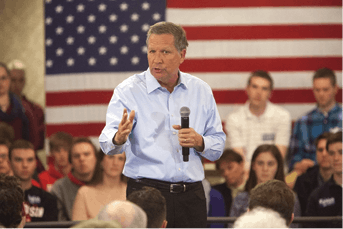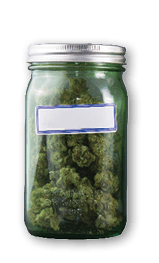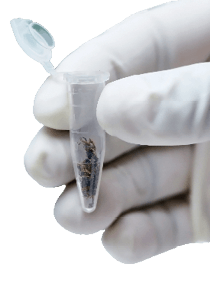
“I don’t see a role for it in this at all.”
Ohio Gov. John Kasich at a news conference on March 30, referring to the state’s medical marijuana program as a potential solution to assist in mitigating the opioid epidemic that has hit hard in the state. Kasich signed a medical marijuana bill into law for Ohio in June 2016. The regulations of the law are still being developed by three state agencies. “I don’t like the whole thing—medical marijuana,” Kasich added. “It got passed because somebody was going to have a broader law.” Source: Cleveland.com

“We literally just pulled them off the shelf. We don’t feel comfortable giving that to our patients.”
A manager of Hollywood High Grade Dispensary in an interview with an NBC4 reporter after learning that some of the dispensary’s products contained high levels of pesticides. The NBC4 Los Angeles-based I-Team purchased 44 smoking and vaping products from dispensaries throughout the area and had them tested by Steep Hill Labs, which discovered that 93 percent of the samples had “pesticide levels that would exceed safety limits in some other states.” Source: NBC4

“As we face the reality of these legalizations, we stand eager to work with our federal partners to address implementation and enforcement concerns cooperatively.”
From a letter written to Attorney General Jeff Sessions and U.S. Treasury Secretary Steve Mnuchin by Alaska Gov. Bill Walker, Colorado Gov. John Hickenlooper, Oregon Gov. Kate Brown and Washington Gov. Jay Inslee. The letter calls on the Trump Administration to engage with the state leaders before “embarking on any changes to regulatory and enforcement systems.” Source: The Seattle Times/Associated Press

“This has been ongoing for years— roadblock after roadblock after roadblock.”
Scott Murphy, co-founder of the Massachusetts-based Veterans for Safe Access and Compassionate Care, to the Washington Post regarding John Hopkins University’s pulling out of a research study to determine if and how marijuana could be used to treat post-traumatic stress disorder (PTSD). The study, which had been ongoing for the past 18 months, was halted without any enrollment of veterans after the administrator of Multidisciplinary Association for Psychedelic Studies (MAPS)–the university’s partner in the research–challenged the federal rules that the marijuana being studied must be grown by the National Institute on Drug Abuse. One of MAPS’ lead researchers told PBS that the government-grown marijuana was “poor quality and contaminated with mold.” John Hopkins quit the study two days later. Source: The Washington Post
















